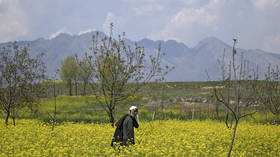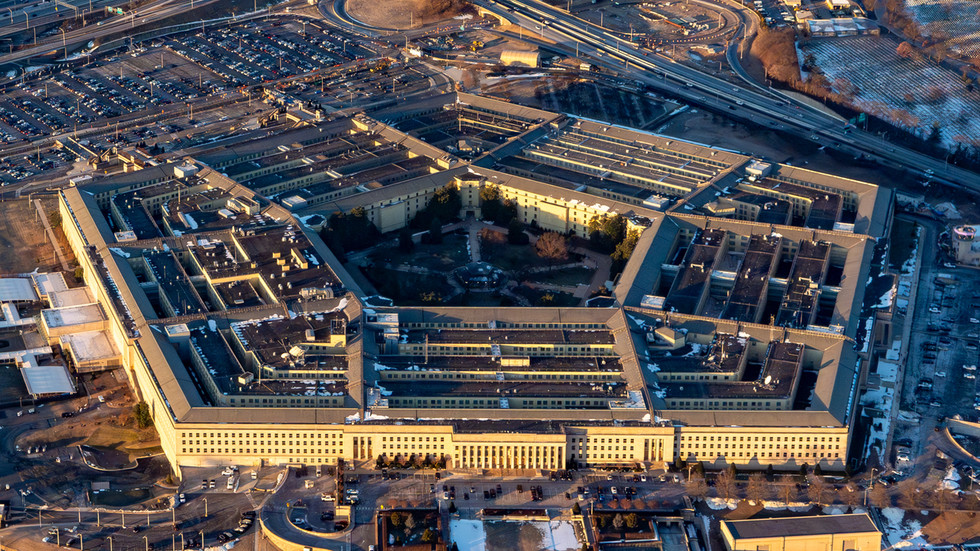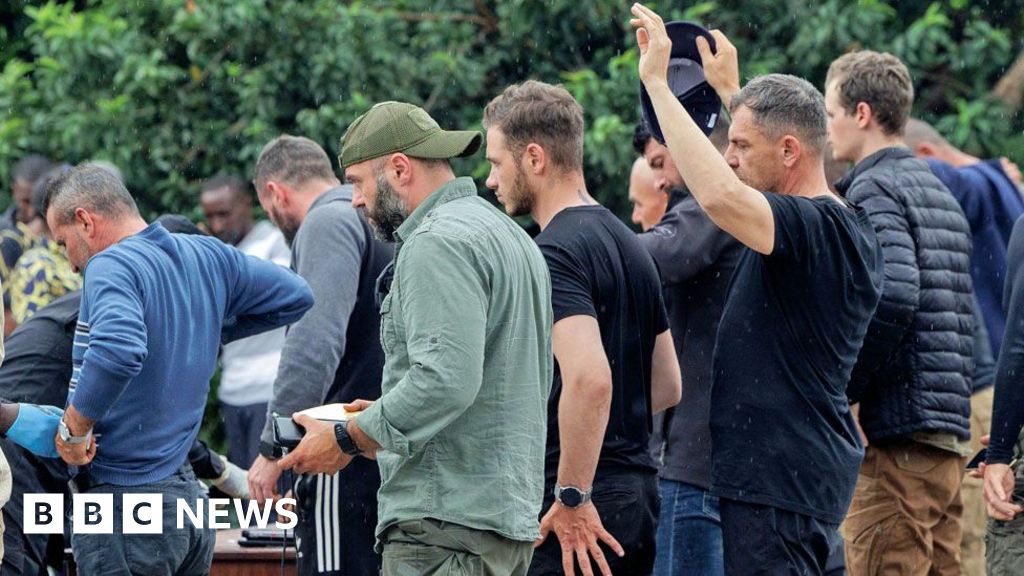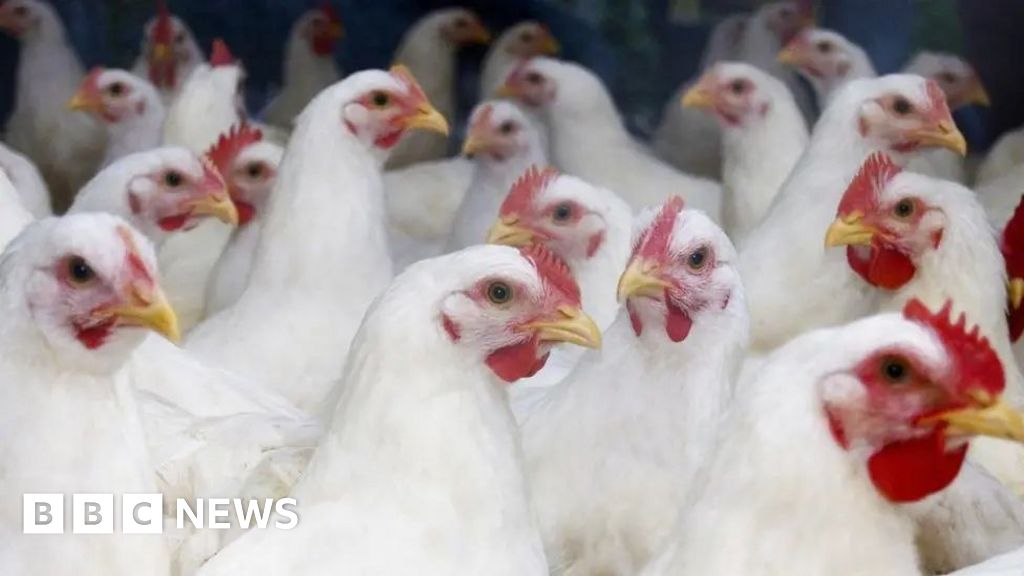In India, the succession of elected officials allows families to run local economies, bringing wealth to the elite and power to the wealthy
Prime Minister Narendra Modi calls parivaarvad, or dynastic politics, “the biggest enemy of democracy”. And yet India, which is pursuing its Lok Sabha (parliamentary lower house) election, is rife with examples of political inheritances.
For instance, Wrestling Federation of India (WFI) chief Brij Bhushan Sharan Singh, the incumbent Member of Parliament from Kaiserganj, UP, was dropped on Thursday by the ruling Bharatiya Janata Party (BJP) in a bid to deflect public anger over public accusations of sexual harassment by Olympic wrestlers; he was replaced with his son.
On Friday, the opposition Indian National Congress announced that Rahul Gandhi would take part in the election in Raebareli, UP. This seat was represented by his grandfather Feroze Gandhi in 1952 and 1957; his grandmother, former PM Indira Gandhi in 1967, 1971 and 1980; and his mother Sonia Gandhi from 2004 until this year. Rahul’s great-grandfather was India’s first PM, Jawaharlal Nehru.
Another former PM, H. D. Deve Gowda, is fending off critics after several sexual assault cases surfaced involving his grandson Prajwal Revanna, the incumbent MP and candidate in Hassan, Karnataka. He belongs to a party in the BJP-led National Democratic Alliance (NDA), and PM Modi has been quick to strongly condemn the young man, who has fled India for Germany.
While “parivaarvad” is a useful dig during election rallies, politicians from across the spectrum tap sons, daughters, wives, brothers, sisters, parents and even sons-in-law and daughters-in-law as candidates with a view to retain or expand their political clout and wealth.
High stakes
In the western state of Maharashtra, the Baramati constituency is witnessing a high-stakes political battle. The incumbent MP, Supriya Sule, the daughter of the 83-year-old clan patriarch Sharad Pawar, is opposed by Sunetra Pawar, wife of Ajit Pawar, Sule's cousin and Sharad Pawar’s nephew, who was once seen as his political successor.
They are fighting because their parent party, the Nationalist Congress Party (NCP), headed by Sharad Pawar, split 11 months ago, when Ajit, tiring of waiting for his turn and suspicious that his uncle would ultimately ditch him for Supriya, took his faction and joined hands with the BJP to form a new state government.
Baramati is hardly the outlier. Maharashtra sends 48 elected members to the Lok Sabha; candidates in at least 31 of these constituencies belong to political families or have relatives who are former or incumbent MPs, members of a legislative assembly, elected representative to a local body, etc. In a handful of these, as in Baramati, the two main contenders are both dynasts.
In the financial capital Mumbai, which has six parliamentary constituencies, members of political families will take the field in five. Most prominent among these is the BJP candidate from Mumbai North: Commerce Minister Piyush Goyal, whose father Ved Prakash Goyal was the BJP treasurer for decades.
In Jalgaon, an agrarian district in northern Maharashtra, Karan Patil-Pawar, the grandson of a former Congress leader and nephew of an incumbent state legislator, will take on state legislator Smita Wagh, whose late husband was the district president of the BJP.
Campaigning for Patil-Pawar in the town of Amalner, Manoj Patil, a former municipal councilor, said emphatically that local voters do not care if their candidate is from a political family.
“On the contrary, people themselves often ask the offspring of senior leaders to take over the mantle—these youngsters, like Karan, can be capable leaders with an instinctive knowledge of how to respond to public needs and get things done,” he said.
In any case, Smita Wagh was herself grooming her daughter Bhairavi for a meaty role in district electoral politics, so she could hardly use her opponent Karan’s family privilege against him.
In Baramati’s family drama, the entire Pawar clan, a large family controlling sugar cooperatives, banks, businesses and various industrial investments, has rallied behind the patriarch. Ajit Pawar’s own brother has crossed over and allied with the uncle, to ensure that the veteran’s image is not slighted. Ajit, currently Maharashtra’s deputy chief minister, has had to lament at public meetings that he has been abandoned by the extended family.
Sakshana Salgar, a district-level elected representative, and state president of the Nationalist Yuvati Congress, a political wing for young women initiated by Supriya, said “voters in Baramati viewed the unfolding battle as if it were the mythological battle between the Pandavas and the Kauravas,” cousins who wage an 18-day war-to-the-end in an Armageddon-like good versus evil tale called the Mahabharata, written around the 4th Century BCE.
Power for the wealthy
Political families are not unique to India–land-owning families have won elections and controlled resources in the Philippines where at least three recent presidents had parents who were presidents too; in Cambodia, the ruler since 1985 handed over the prime ministership to his son; and in North Korea, rulers have all come from one clan.
Political succession within the family helps control the nuts and bolts of the local political economy which works to bring wealth to the political elite and also, simultaneously, helps perpetuate political power for the wealthy. That is why Maharashtra’s big political dynasties are also barons of industry, private education, agricultural cooperatives, etc. Others control large caste groups, eventually also controlling resources.
Ruben Mascarenhas, 35, the working president of the Mumbai unit of the Aam Aadmi Party (AAP), India’s youngest national political party that has disrupted a traditional landscape of politicians with its breed of educated professionals including many from working class backgrounds, said dynasty politics makes for a very high entry barrier in the mainstream parties.
“It’s sad that the political landscape has always been feudal,” he said. “Unlike in the western world, most political parties in India do not offer their cadres the opportunity to rise through the ranks.”
The AAP is a political start-up and the only party to offer such upward mobility based entirely on work and merit, he said. Without a system of primaries, first-generation politicians like him, born to hard-working middle-class parents, without a political pedigree, face an unlevel playing field.
“I couldn’t have imagined this, at this age, without pots of money and without being some kind of antisocial element, to be the head of a city unit of any other political party,” he added.
The tight race
Besides the Pawars, also in the fray in Maharashtra are the Vikhe-Patils and Mohite-Patils of western Maharashtra who are agrarian satraps. The Vikhe-Patils are descendants of Vitthalrao Vikhe Patil, the founder of the cooperative movement in the Indian sugar industry. Based in Ahmednagar, the family has been in politics ever since, and are known for constantly jumping parties. Similarly, Shankarrao Mohite Patil, the patriarch of his clan, started the cooperative movement in drought-prone Solapur district. His son Vijaysinh Mohit-Patil was a deputy CM of Maharashtra, and his nephew Dhairyasheel Mohite-Patil is contesting the current election. His grandson Ranjitsinh Mohit-Patil is waiting in the wings.
Mumbai’s Thackerays comprise the best known political family in India’s financial capital. Patriarch Balasaheb Thackeray, grew the Shiv Sena with a “son-of-the-soil” rhetoric that called for the removal of first south Indians, then north Indians, and then Muslims. His son Uddhav was chief minister of Maharashtra (2019-2022) till his party split. Cousin Raj has floundered after a promising start in the 1990s. Uddhav’s son Aditya is an important member of their Shiv Sena faction.
Pankaja Munde, whose family has represented the ‘other backward castes’ (OBC) in the arid heart of central Maharashtra, is contesting the election from Beed. Her father Gopinath Munde died in a car accident after becoming a minister in Modi’s 2014 government. He was married to the sister of an important member of the BJP brain trust, Pramod Mahajan, who was shot dead in his Mumbai apartment by his brother Pravin in 2006.
Two grandsons of Dr. Bhimrao Ambedkar, the dalit leader who is called the father of the Indian Constitution, are contesting too — Prakash Ambedkar from Akola and Anandraj Ambedkar from Amravati.
The Congress’s candidate in Kolhapur is Chhatrapati Shrimant Shahu Maharaj (Chhatrapati is Marathi for emperor), a direct descendant of Chhatrapati Shivaji, the 17th century Maratha warrior king.
Younger politicians without political lineage do not shy away from offering kin a foot in the door. The Congress candidate in Chandrapur was Pratibha Dhanorkar, a state legislator who entered politics after her husband was elected to parliament in 2019. After his sudden demise, she was fielded from his seat in the first phase of the 2024 polls.
On the fringes of Mumbai, in the Kalyan constituency, state chief minister Eknath Shinde’s son Shrikant Shinde will try to defend his seat, having entered politics on the footsteps of his father, creating a new political family.
Mascarenhas said Indians unfortunately view leaders as “elected maharajahs”, leaving some deep-rooted questions about what this means for a vibrant democracy where the election process is a genuine, bona fide exercise, there is peaceful transition of power, but an inability to stem the erosion of democratic institutions while dynasts continue to serve family interests.
By Kavitha Iyer, a Mumbai-based journalist. She is the author of the award-winning ‘Landscapes Of Loss: The Story Of An Indian Drought’.

 8 months ago
21
8 months ago
21












